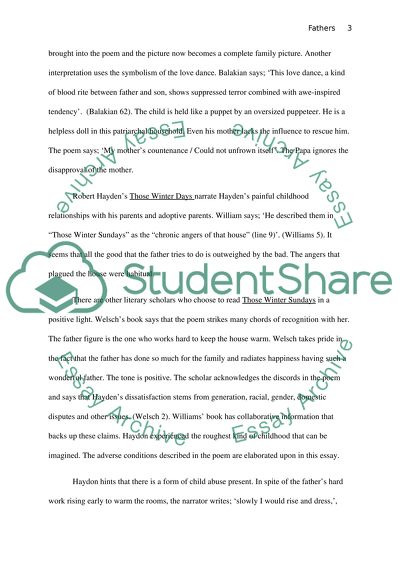Cite this document
(“Theodore Roethkes My Papas Waltz and Robert Haydens Those Winter Essay”, n.d.)
Retrieved from https://studentshare.org/literature/1540881-theodore-roethkes-my-papas-waltz-and-robert-haydens-those-winter-sunday
Retrieved from https://studentshare.org/literature/1540881-theodore-roethkes-my-papas-waltz-and-robert-haydens-those-winter-sunday
(Theodore Roethkes My Papas Waltz and Robert Haydens Those Winter Essay)
https://studentshare.org/literature/1540881-theodore-roethkes-my-papas-waltz-and-robert-haydens-those-winter-sunday.
https://studentshare.org/literature/1540881-theodore-roethkes-my-papas-waltz-and-robert-haydens-those-winter-sunday.
“Theodore Roethkes My Papas Waltz and Robert Haydens Those Winter Essay”, n.d. https://studentshare.org/literature/1540881-theodore-roethkes-my-papas-waltz-and-robert-haydens-those-winter-sunday.


